As a responsible pet owner, it is essential to provide your hamster with the best possible care. One crucial aspect of their well-being is ensuring they have access to a suitable hamster wheel. Not only does a wheel keep them active and entertained, but it also plays a vital role in preventing potential health issues. With a vast array of options available in the market, selecting the most appropriate wheel for your furry friend can be overwhelming. This comprehensive guide aims to simplify the process by delving into the essential factors to consider when choosing the best hamster wheel. By the end of this article, you will be equipped with the knowledge to make an informed decision and provide your pet with hours of enjoyable playtime.
Can a Hamster Eat a Strawberry?
Seemore: Can a Hamster Eat a Strawberry?
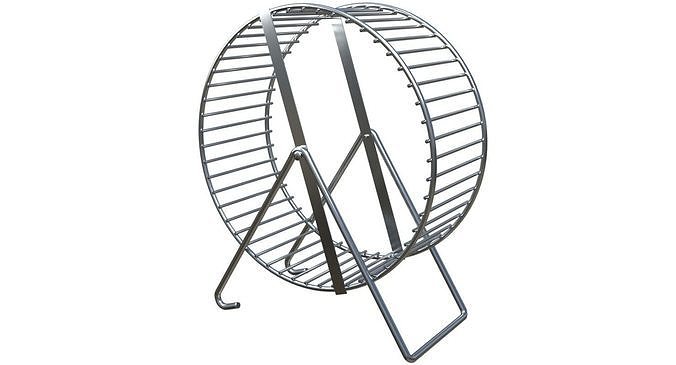
Understanding the Importance of a Hamster Wheel
Hamsters are naturally active and curious creatures, with an innate need to explore and expend energy. In their natural habitat, they cover vast distances in search of food, mates, and nesting sites. Even in captivity, this instinct remains, making it crucial to provide them with ample opportunities for exercise. A hamster wheel serves as an indispensable tool in fulfilling this need. By allowing your hamster to run freely, the wheel provides numerous benefits:
- Encourages Exercise and Prevents Obesity: Running on a wheel helps hamsters stay active and maintain a healthy weight. Exercise plays a significant role in preventing obesity, a common health concern among hamsters.
- Promotes Mental Stimulation: Hamsters are intelligent creatures that require mental stimulation to thrive. A wheel provides them with an outlet for their energy and curiosity, preventing boredom and destructive behaviors.
- Improves Cardiovascular Health: Just like humans, hamsters need regular exercise to keep their hearts healthy. Running on a wheel increases their heart rate and improves blood circulation, promoting overall cardiovascular health.
- Prevents Stress and Aggression: Hamsters can become stressed and aggressive if they do not have an outlet for their energy. A wheel allows them to release pent-up energy, reducing the risk of stress-related health issues and aggressive behavior towards other cage mates.
- Promotes Natural Behavior: In the wild, hamsters run long distances in search of food and shelter. Providing them with a wheel mimics this natural behavior, fulfilling their instinctual need to run and explore.
- Keeps Nails Trimmed: Regular use of a wheel can help keep your hamster’s nails trimmed, preventing overgrowth and potential injuries.
Now that we understand the importance of a hamster wheel let’s dive into the essential factors to consider when choosing the best one for your furry friend.

Size and Type of Wheel
The size and type of wheel are crucial factors to consider when selecting the best hamster wheel for your pet. The size of the wheel should be appropriate for your hamster’s breed and size. A wheel that is too small can cause back problems, while a wheel that is too large can be challenging for smaller breeds to use comfortably. As a general rule, the wheel should have a diameter of at least 8 inches for dwarf hamsters and 10 inches for Syrian hamsters.
There are three main types of hamster wheels available in the market:
Traditional Wire Wheels
Traditional wire wheels are the most common type of hamster wheel. They consist of a metal frame with wire spokes and a solid running surface. These wheels are lightweight, easy to clean, and provide good ventilation. However, they can be noisy and may pose a risk of injury if your hamster gets their feet caught in the wires.

Plastic Wheels
Plastic wheels are made entirely of plastic and have a solid running surface. They are quieter than wire wheels and pose less of a risk of injury. However, they may not be as durable and can become slippery if your hamster’s feet are wet.
Flying Saucer Wheels
Flying saucer wheels are a newer type of wheel that is gaining popularity among hamster owners. They have a flat, circular design with a solid running surface and no spokes or wires. These wheels are quiet, easy to clean, and provide a more natural running experience for hamsters. However, they may not be suitable for larger breeds and can take up more space in the cage.
When choosing the type of wheel, consider your hamster’s preferences and behavior. Some hamsters may prefer a traditional wire wheel, while others may enjoy the challenge of a flying saucer wheel. It is also essential to monitor your hamster’s use of the wheel and switch to a different type if you notice any discomfort or difficulty.
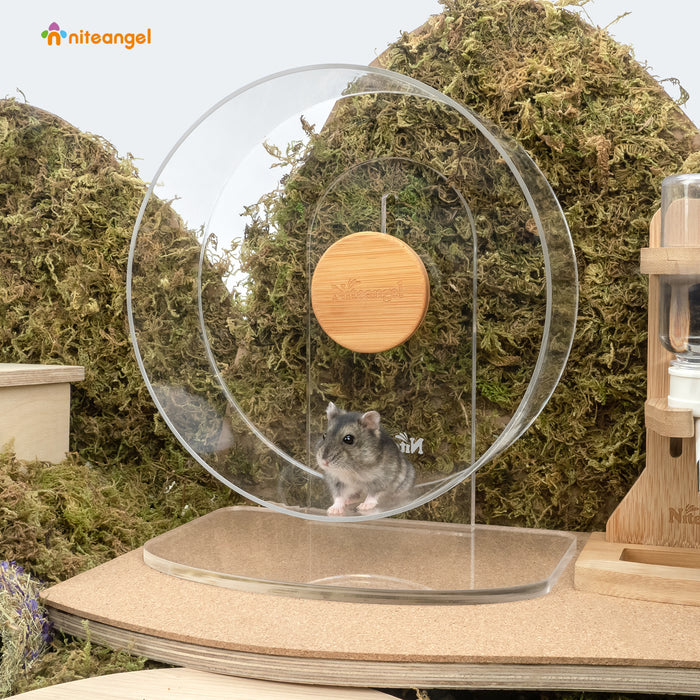
Safety Features
The safety of your hamster should be a top priority when selecting a wheel. Look for wheels that have the following safety features:
- Solid Running Surface: A solid running surface prevents your hamster’s feet from getting caught in wires or spokes, reducing the risk of injury.
- No Sharp Edges: The wheel should not have any sharp edges that could potentially harm your hamster.
- Sturdy Construction: The wheel should be sturdy and well-constructed to prevent it from tipping over or breaking while in use.
- Non-Toxic Materials: Make sure the wheel is made of non-toxic materials, as hamsters have a habit of chewing on their toys.
- Silent Operation: Some wheels come with a silent spinner feature, which reduces noise and prevents disturbing your hamster’s sleep.
It is also crucial to regularly check the wheel for any wear and tear and replace it if necessary. A damaged wheel can pose a significant risk to your hamster’s safety.
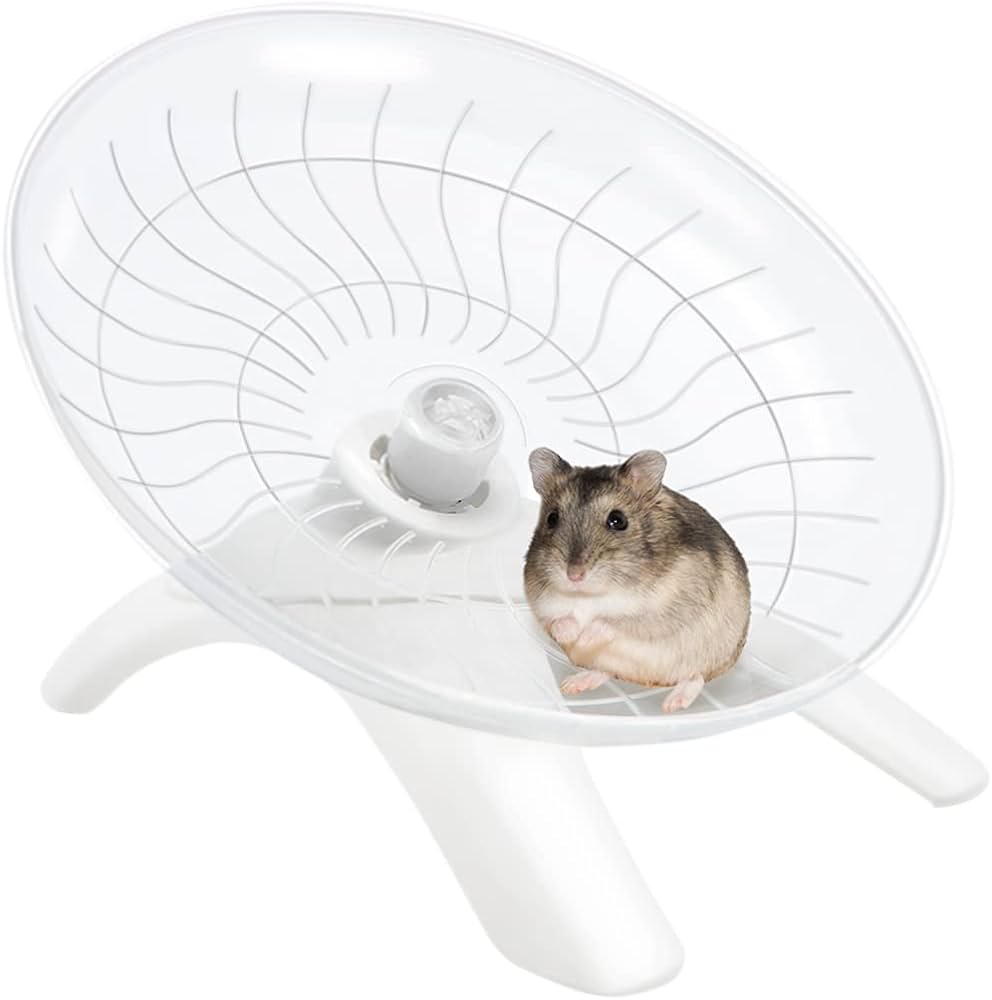
Wheel Placement and Cage Size
The placement of the wheel within the cage is another critical factor to consider. The wheel should be easily accessible for your hamster, and there should be enough space around it for them to run freely without hitting any obstacles. It is also essential to consider the size of your hamster’s cage when choosing a wheel. A larger cage will allow for a bigger wheel, providing your hamster with more room to run and play.
Material and Durability
The material and durability of the wheel are crucial factors to consider, especially if you have an active or chew-happy hamster. Look for wheels made of durable materials such as metal or high-quality plastic. Avoid wheels made of flimsy materials that may break easily or pose a choking hazard if your hamster chews on them.
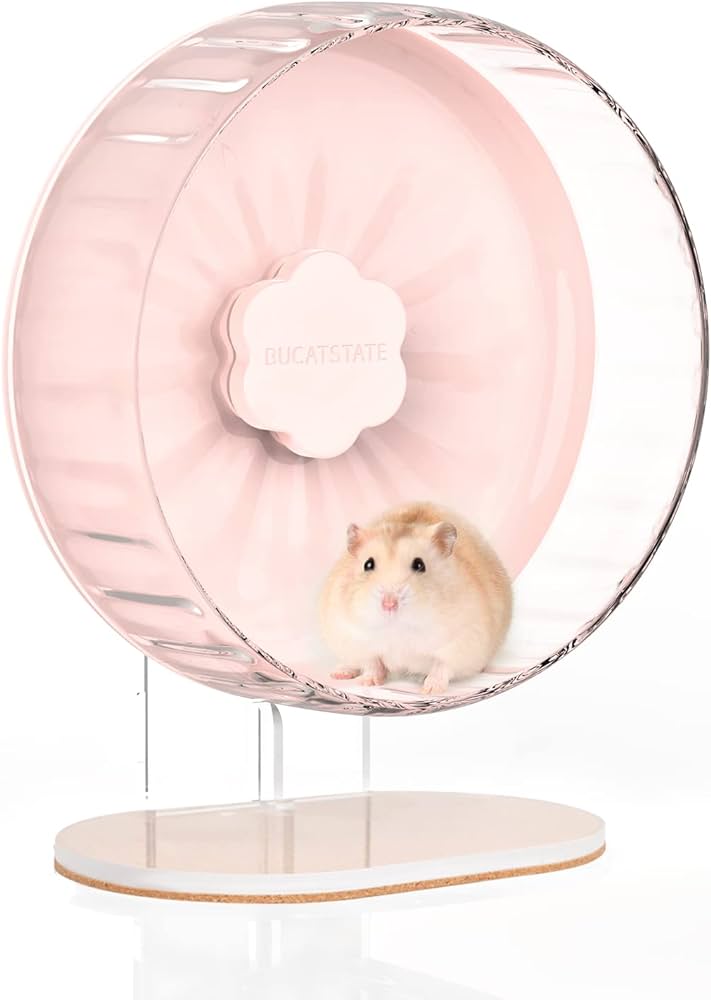
Ease of Cleaning
Regular cleaning of your hamster’s wheel is essential to prevent the build-up of bacteria and keep your pet healthy. Choose a wheel that is easy to disassemble and clean, as this will make the process much more manageable. Some wheels come with detachable parts or can be placed in the dishwasher for easy cleaning.
Price and Brand Reputation
While price should not be the sole determining factor, it is essential to consider your budget when selecting a hamster wheel. High-quality wheels may come at a higher price, but they are often more durable and provide better safety features. It is also advisable to purchase from reputable brands that have a good track record of producing safe and reliable hamster wheels.
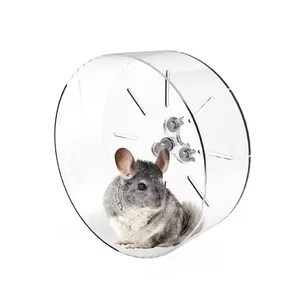
Conclusion
Choosing the best hamster wheel for your furry friend may seem like a daunting task, but with the right knowledge, it can be a straightforward process. Consider the size and type of wheel, safety features, placement and cage size, material and durability, ease of cleaning, and price and brand reputation when making your decision. By taking these factors into account, you can ensure your hamster has access to a suitable and safe wheel that will provide them with hours of enjoyable playtime and contribute to their overall well-being. Remember to regularly monitor the wheel for any wear and tear and replace it if necessary. With the right wheel, your hamster will be a happy and healthy companion for years to come.
